Notabilis - Cross of Alaska Cedar & Arizona Cypress
scotjute Z8
16 years ago
Related Stories

LANDSCAPE DESIGNWarm Up Your Home With an Evergreen Windbreak
Plant tall trees for more warmth in winter, serenity in summer and good looks all year long
Full Story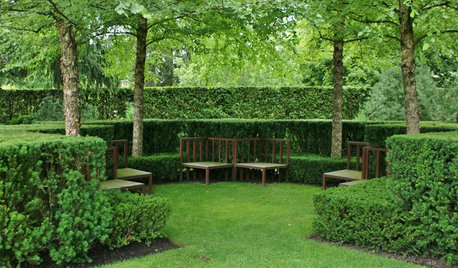
GARDENING GUIDESGrow Your Own Privacy: How to Screen With Plants and Trees
Use living walls to lower your home and garden's exposure while boosting natural beauty in your landscape
Full Story
LIGHTINGHouse Hunting? Look Carefully at the Light
Consider windows, skylights and the sun in any potential home, lest you end up facing down the dark
Full Story
ROOTS OF STYLEArt Deco, Art Nouveau, Arts and Crafts: What’s the Difference?
If the zigzag and swirly designs of the past leave your head spinning, these descriptions will straighten you right out
Full Story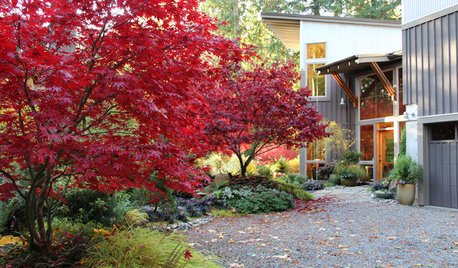
FALL GARDENINGHouzz Call: Show Us Your Fall Color!
Post pictures of your fall landscape — plants, leaves, wildlife — in the Comments section. Your photo could appear in an upcoming article
Full Story
ARTWhat Sculpture Brings to the Garden
See 10 ways garden art earns its place in our personal outdoor spaces
Full Story
COASTAL STYLEHouzz Call: Share Your Waterfront Views of Summer
We want to see your favorite coastal-home or shoreline views. Post yours in the Comments, and we’ll feature the best in a future article
Full Story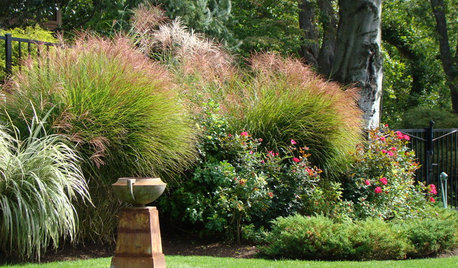
LANDSCAPE DESIGNThe 7 Best Plant Types for Creating Privacy and How to Use Them
Follow these tips for using different kinds of plants as living privacy screens
Full Story
LANDSCAPE DESIGNHow to Make Your Painted or Stained House Feel at Home in the Landscape
Use color and texture to create a pleasing connection between your house and garden
Full Story
MODERN ARCHITECTURERoots of Style: International Style Celebrates Pure Form
Using technology and materials of the time, International style is always current. See its expression in these 16 homes around the world
Full Story





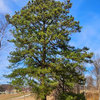
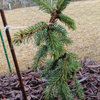



pineresin
georgeinbandonoregon
Related Professionals
Bridgetown Landscape Architects & Landscape Designers · Elwood Landscape Architects & Landscape Designers · Lyons Landscape Architects & Landscape Designers · Mitchellville Landscape Architects & Landscape Designers · Waterbury Landscape Contractors · Athens Landscape Contractors · Burien Landscape Contractors · Fort Atkinson Landscape Contractors · Framingham Landscape Contractors · Indio Landscape Contractors · Lake Saint Louis Landscape Contractors · Lexington Landscape Contractors · Mount Sinai Landscape Contractors · Sammamish Landscape Contractors · Winchester Landscape Contractorspineresin
scotjute Z8Original Author
Luv My Conifers
william-and-mary
pineresin
smalljaw
pineresin
torreya-2006
greenlarry
pineresin
greenlarry
pineresin
greenlarry
pineresin
greenlarry
scotjute Z8Original Author
pineresin
pinetree30
plants77
pinetree30
Embothrium
plants77
Embothrium
pinetree30
pineresin
greenman28 NorCal 7b/8a
blue_yew
pineresin
Embothrium
nothotsuga
plants77
nothotsuga
Embothrium
plants77
Embothrium
ian_wa
barbaraincalif
Embothrium
pinetree30
dcsteg
Embothrium
linus7
scotjute Z8Original Author
blue_yew
pineresin
pinetree30
Embothrium
trees144